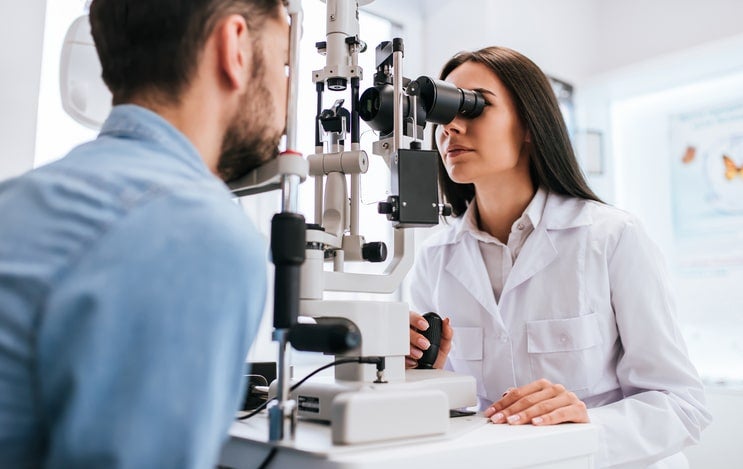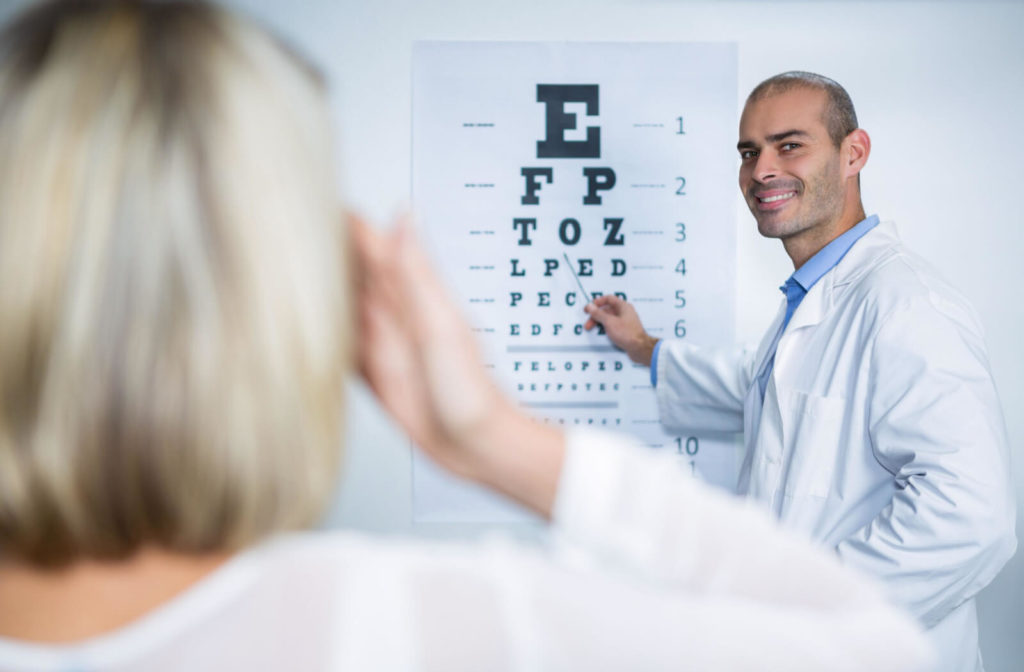Premier Optometrist Montgomery for Clearer Vision
Premier Optometrist Montgomery for Clearer Vision
Blog Article
The Significance of Normal Eye Exams: Insights From a Skilled Ophthalmologist
Routine eye exams act as a critical part of health care that expands past plain vision adjustment. A knowledgeable ophthalmologist can provide understandings right into just how these analyses not just discover common eye problems however likewise disclose underlying health and wellness issues that might otherwise go undetected. The silent progression of diseases such as glaucoma and macular deterioration underscores the necessity of very early detection. Understanding the regularity and relevance of these analyses can ultimately influence one's long-term health trajectory, raising the concern of just how usually individuals should prioritize their eye wellness in the context of overall health.
Benefits of Routine Eye Exams
Although several people might neglect the importance of normal eye exams, these assessments play an important role in preserving general health and wellness and well-being. Regular eye assessments serve not only to examine vision yet also to identify very early signs of systemic health and wellness problems, including diabetes and hypertension. By recognizing these problems at their inception, individuals can get timely interventions, significantly improving long-term outcomes.
In addition, eye tests can assist in checking existing health problems, ensuring that any kind of changes in vision or eye health and wellness are quickly attended to (optometrist). The assessments permit personalized referrals regarding glasses, way of life changes, and protective procedures against possible eye stress or damages
Beyond physical health and wellness, the advantages of normal eye examinations include enhancing high quality of life. Improved vision promotes much better performance in daily activities, from reading to driving, thus adding to greater independence and security. Eventually, prioritizing eye tests fosters a positive strategy to wellness administration, encouraging individuals to take charge of their wellness. Normal exams are an important element of a thorough healthcare approach, making sure that both vision and general health and wellness are protected throughout life.
Common Eye Issues Detected
Normal eye examinations contribute in detecting a range of usual eye conditions that can significantly affect vision and total health. Amongst one of the most widespread problems determined during these exams are refractive mistakes, consisting of myopia (nearsightedness), hyperopia (farsightedness), and astigmatism. These conditions commonly materialize as blurred vision and can be quickly fixed with prescription glasses or contact lenses.
Additionally, cataracts, which trigger clouding of the lens, are frequently identified in older grownups. This problem can cause reduced vision and requires medical intervention for resolution. One more usual issue is glaucoma, a team of eye illness that harm the optic nerve, frequently connected to boosted intraocular stress. Early detection is important as it can protect against irreparable vision loss.
Age-related macular deterioration (AMD) is an additional significant problem that influences main vision, particularly in individuals over 50. Finally, diabetic person retinopathy, an issue of diabetes mellitus, can bring about severe vision disability otherwise monitored on a regular basis. With extensive eye examinations, these problems can be identified early, permitting timely management and therapy to maintain vision and boost high quality of life.
Relevance of Early Detection
Early discovery of eye conditions plays a crucial function in protecting vision and stopping considerable health and wellness difficulties. Many eye conditions, such as glaucoma, diabetic retinopathy, and age-related macular deterioration, can progress calmly without noticeable signs in their onset. By the time signs manifest, permanent damages might have occurred, leading to permanent vision loss.
Regular eye exams facilitate very early diagnosis, more helpful hints allowing for timely treatment and treatment. For example, treating elevated intraocular pressure can protect against the start of glaucoma, while handling blood glucose levels can substantially reduce the risk of diabetic retinopathy. Furthermore, conditions like cataracts can be effectively managed with surgical treatment when recognized early.

Exactly How Usually Should You Visit?
Determining the frequency of eye examinations is essential for maintaining optimal eye health and wellness and vision. The general suggestion for adults is to have a thorough eye examination every one to 2 years, depending on specific danger variables and age.
People with particular threat aspects, such as a family members history of eye condition, diabetes mellitus, or existing vision problems, may need even more regular evaluations. Children should have their initial eye exam at 6 months old, followed by extra tests at age three and prior to entering college. Normal exams during childhood years are vital as vision can change swiftly throughout developing years.
Ultimately, the regularity of sees need to be tailored to each person's conditions, consisting of lifestyle, job-related dangers, and any pre-existing eye problems. Consulting with an eye treatment specialist can offer customized suggestions, ensuring that your eye wellness is on a regular basis monitored and preserved.
Tips for Your Eye Exam
Getting ready for your eye exam can improve the performance of the browse through and guarantee a complete assessment of your eye health. To optimize your time with the eye medical professional, it is essential to gather appropriate info prior to your visit. Beginning by compiling a list of any kind of drugs you are website here presently taking, including over-the-counter medications and supplements, as these can affect eye wellness.
Additionally, record any signs you have actually experienced, such as blurred vision, pain, or frustrations. This details will aid your eye physician in detecting prospective concerns.
It is also beneficial to have a family background of eye problems at hand, as hereditary factors can add to your eye health and wellness. Lastly, consider arranging your exam for a while when you are much less rushed, enabling you to ask inquiries and discuss your worries thoroughly. By preparing sufficiently, you make certain that your eye examination is effective and that your optometrist has all the needed information to offer the very best care possible.

Verdict
Routine eye exams play a crucial function in preserving both vision and total wellness. Eventually, focusing on extensive eye examinations adds considerably to the conservation of vision and the renovation of quality of life, highlighting the need of regular eye care in preventive medical care techniques.
Normal eye exams are critical in spotting a range of usual eye problems that can significantly impact vision and general health and wellness.Determining the frequency of eye examinations is crucial for maintaining optimal eye health and vision.Preparing for your eye examination can improve the efficiency of the browse through and ensure an extensive examination of your eye health and wellness (optometrist). By preparing appropriately, you make certain that your eye test is productive and that your eye doctor has all the required information to supply the finest More Help treatment possible
Eventually, prioritizing detailed eye examinations adds dramatically to the conservation of vision and the enhancement of top quality of life, highlighting the need of regular eye treatment in preventative medical care approaches.
Report this page